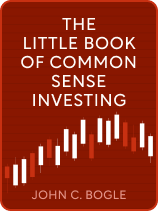

This article is an excerpt from the Shortform book guide to "The Little Book of Common Sense Investing" by John C. Bogle. Shortform has the world's best summaries and analyses of books you should be reading.
Like this article? Sign up for a free trial here.
Should you invest in mutual funds? Can actively managed mutual funds beat index funds?
Index funds have consistently outperformed the majority of mutual funds since 1970. However, advocates of mutual funds argue that it only shows index funds are better than the average mutual fund.
Here’s why index funds will always outperform mutual funds in the long run, according to Jack Bogle.
Why Index Funds Will Always Outperform Mutual Funds
Should you invest in mutual funds? According to Jack Bogle, the author of The Little Book of Common Sense Investing, index funds are by far superior to mutual funds. To prove his point, Bogle uses Monte Carlo simulation—a statistical model predicting how likely different outcomes are—to determine the likelihood that actively managed mutual funds will outperform TIFs in the long term. This simulation predicts that only 2% of mutual funds will outperform index funds over a 50-year period.
(Shortform note: Experts have argued that Monte Carlo simulations have various advantages over relying on historical data. For example, while a historical outcome could have been a fluke, Monte Carlo simulations examine thousands of possibilities to determine which outcomes are anomalous and which are normal. Moreover, Monte Carlo simulations can tweak inputs to examine the likelihood of different outcomes given different initial conditions; historical data, by contrast, are limited to whichever initial conditions held true historically.)
Bogle’s Monte Carlo simulation relies on two key assumptions: First, mutual funds are volatile, meaning their performance relative to the market varies yearly; and second, mutual fund management will cost about 2% annually, while index fund management will cost 0.25%. Because TIFs actually cost about 0.1% annually, while mutual fund costs can run north of 2%, Bogle observes that this simulation gives mutual funds the benefit of the doubt.
Given these assumptions, the simulation predicts that after one year, 29% of actively managed mutual funds would beat index funds. However, after five years, only 15% of mutual funds would beat index funds, and after 50 years, only 2% of mutual funds would outperform index funds.
(Shortform note: Bogle’s projections are largely in line with recent data comparing actively managed mutual funds to the S&P 500 index; the S&P’s Indices Versus Active report (SPIVA)—a comprehensive report comparing actively managed funds with relevant market indices—found that only 21% of mutual funds outperformed the S&P 500 in 2021. Because traditional index funds essentially mirror the S&P 500, we can assume that 21% also represents the proportion of mutual funds that outperformed traditional index funds in 2021.)

———End of Preview———
Like what you just read? Read the rest of the world's best book summary and analysis of John C. Bogle's "The Little Book of Common Sense Investing" at Shortform.
Here's what you'll find in our full The Little Book of Common Sense Investing summary:
- A simple winning strategy for novice investors
- Why index funds are superior to mutual funds
- Why bonds belong in your investment portfolio






